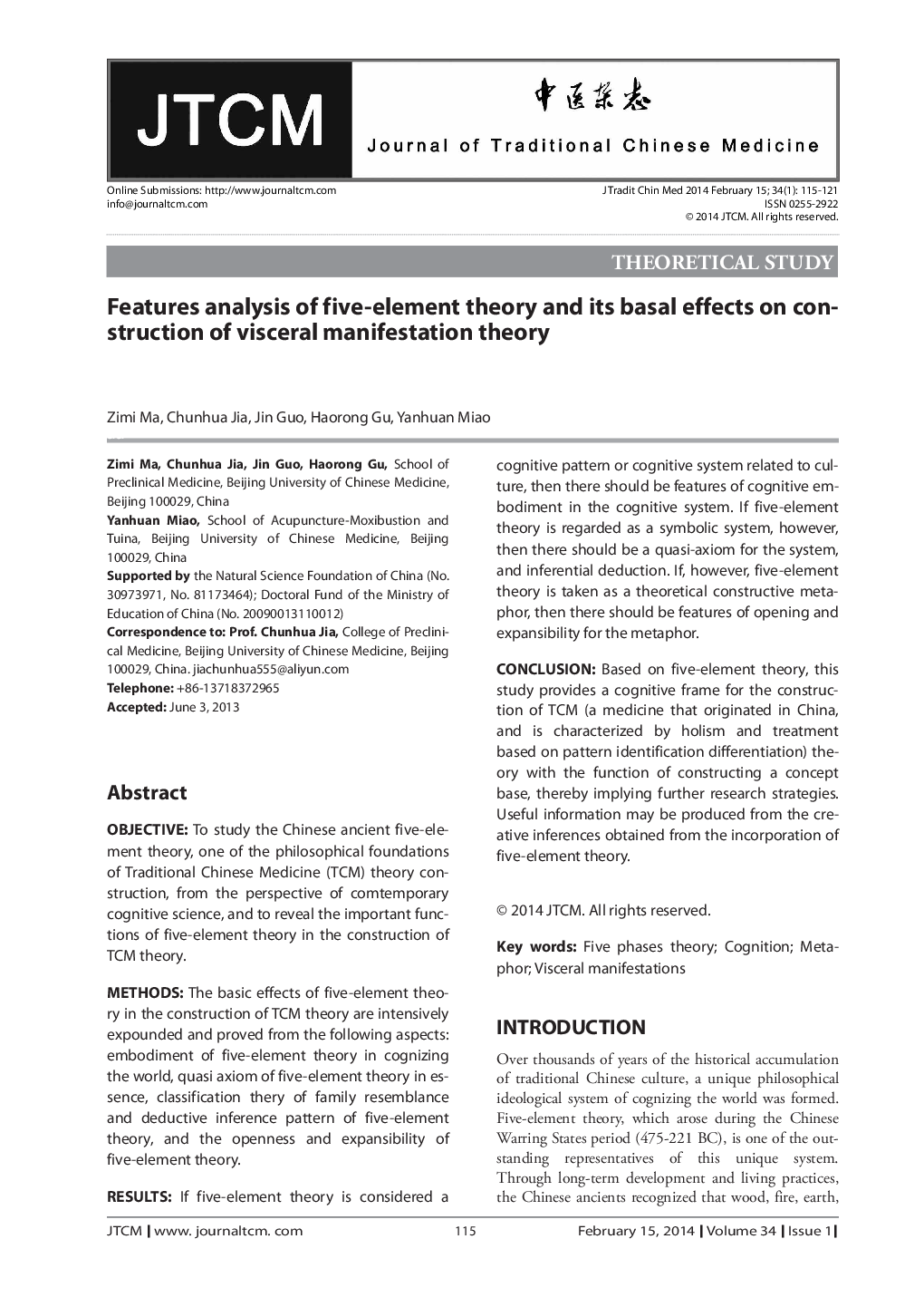| Article ID | Journal | Published Year | Pages | File Type |
|---|---|---|---|---|
| 4201258 | Journal of Traditional Chinese Medicine | 2014 | 7 Pages |
ObjectiveTo study the Chinese ancient five-element theory, one of the philosophical foundations of Traditional Chinese Medicine (TCM) theory construction, from the perspective of comtemporary cognitive science, and to reveal the important functions of five-element theory in the construction of TCM theory.MethodsThe basic effects of five-element theory in the construction of TCM theory are intensively expounded and proved from the following aspects: embodiment of five-element theory in cognizing the world, quasi axiom of five-element theory in essence, classification thery of family resemblance and deductive inference pattern of five-element theory, and the openness and expansibility of five-element theory.ResultsIf five-element theory is considered a cognitive pattern or cognitive system related to culture, then there should be features of cognitive embodiment in the cognitive system. If five-element theory is regarded as a symbolic system, however, then there should be a quasi-axiom for the system, and inferential deduction. If, however, five-element theory is taken as a theoretical constructive metaphor, then there should be features of opening and expansibility for the metaphor.ConclusionBased on five-element theory, this study provides a cognitive frame for the construction of TCM (a medicine that originated in China, and is characterized by holism and treatment based on pattern identification differentiation) theory with the function of constructing a concept base, thereby implying further research strategies. Useful information may be produced from the creative inferences obtained from the incorporation of five-element theory.
